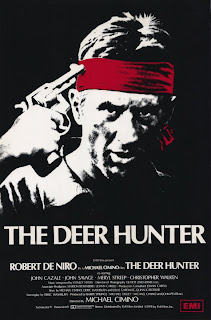by Chris Marshall:
Well, as I somewhat feared, the 1980s as a whole was one of
my least favorite decades so far in The Oscar Project. It’s not that every
movie was terrible, just that there was no film that was really great. Every other decade has had at
least one: Gone with the Wind, Casablanca, All About Eve, The Apartment, half of the 1970s. But the 1980s
didn’t provide a film approaching that caliber.
And yes, there were a couple I just didn’t like at all. I
feel like I was able to find some redeeming quality in every movie I watched
this decade, but Chariots of Fire
having a cool soundtrack doesn’t make up for all of its other flaws. I don’t
think the 80s was a particularly bad decade for film in general, but it was a
bad decade for the Academy. I mean, why wasn’t Ghostbusters or Back to the
Future winning Best Picture?







.jpg)
























